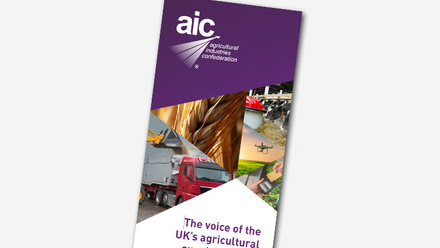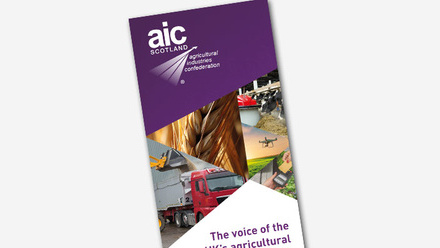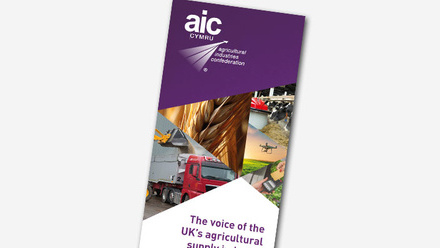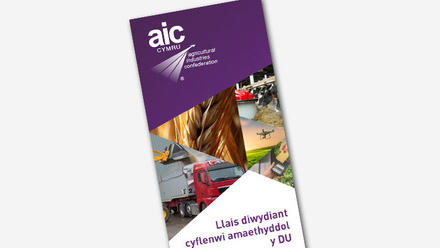What is AIC?
As the UK agricultural supply industry's leading trade association, the Agricultural Industries Confederation (AIC) represents businesses in key sectors within the supply chains that feed the nation.
Our Member businesses supply UK farmers and growers with the animal feed, fertiliser, seed, crop protection products, trusted advice and quality services that are essential to producing food, as well as trading crops and commodities (Combinable Crops) across the globe.
Formed in October 2003 by a merger of three trade associations, today AIC has over 230 Members in the agri-supply trade and represents £17.8 billion turnover at farmgate.
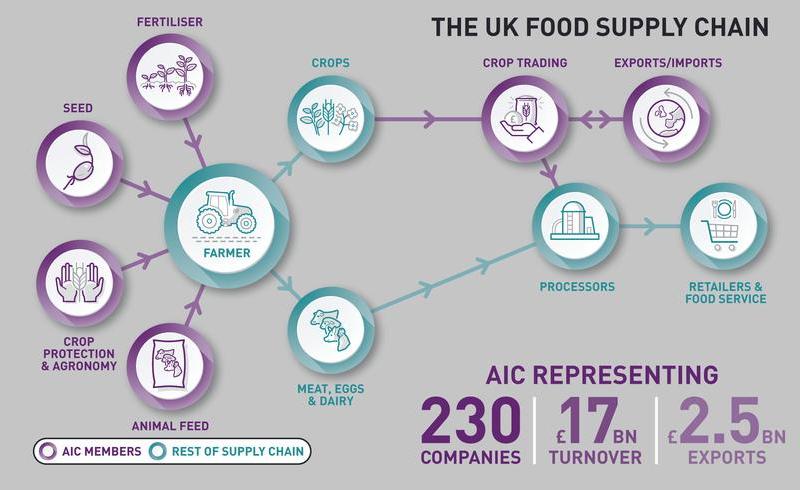
AIC works on behalf of its Members by lobbying policymakers and stakeholders, delivering information, providing trade assurance schemes, and offering technical support.
Watch the video below to find out about the work of the Agricultural Industries Confederation, the UK agri-supply industry's trade association.
Watch to find out more
Download "About AIC" leaflets
Who does AIC represent?
AIC Members represent the agri-supply industry, which provides vital inputs to agricultural and farming sectors.
Sectors and representation of AIC
- Animal Feed - 90%
- Crop Protection & Agronomy - 90%
- Fertilisers (Distributors) - 95%
- Combinable Crops (Grain, oilseed and pulses trading) - 90%
- Seed - 80%
The voice of the agri-supply industry
By listening to the many groups of businesses that contribute to AIC, the Confederation is the voice of the UK agri-supply industry which supplies farmers and growers with essential inputs and advice, as well as marketing crop commodities globally.
Member companies are fully involved in the working and communication process, which ensures that AIC is the leading representative force in these sectors.
Our aims
Working in support of modern, sustainable, commercial agriculture in the UK, and supporting collaboration throughout the food chain.
Our three guiding pillars
AIC supports Member businesses by lobbying for a political and business environment in which sustainable businesses can grow for the benefit of the agri-supply industry and the wider UK economy.
This is secured through enhanced engagement with Governments and stakeholder bodies across the UK.
We encourage our work to encompass all three of our guiding pillars - Productivity, Environment and Competitiveness - delivering for sustainability and contributing to the circular economy.
Productivity
Productivity

We will seek to find and support solutions to improve productivity in UK agriculture. This will enable Member businesses the opportunity to innovate within a supportive regulatory environment.
This will include novel solutions (such as gene editing) and the use of technology and data where it is for the benefit of Members and the sector as a whole.
We will encourage Member businesses who are often uniquely placed to support knowledge transfer from agri-business onto farm through their network of qualified, professional advisers.
Environment
Environment

We will support policy changes which benefit the environment and contribute to net zero, where this progresses the work of agri-business.
With the UK now able to formulate its own policy landscape it is important that AIC seeks to shape a mix of policies for the environment that sustains farming and UK agri-business.
Recognising the political stance in the UK on the environment, AIC will continue to update its Roadmap for a Sustainable Food Chain to incorporate technical advances, and work in partnership with stakeholders and administrations across the UK as new agricultural and environmental policies are developed and implemented.
Competitiveness
Competitiveness

We will work to secure opportunities for UK agri-business to compete in local and global markets.
Our understanding of regulatory impacts covering standards of production, in particular where these impede UK competitiveness, and our ability to identify where changes would make the UK more competitive, will ensure our Members can viably operate without losing sight of the principles of leading standards of food and feed safety.
Work with us
Find our latest career opportunities and see the employment values that we promote.


